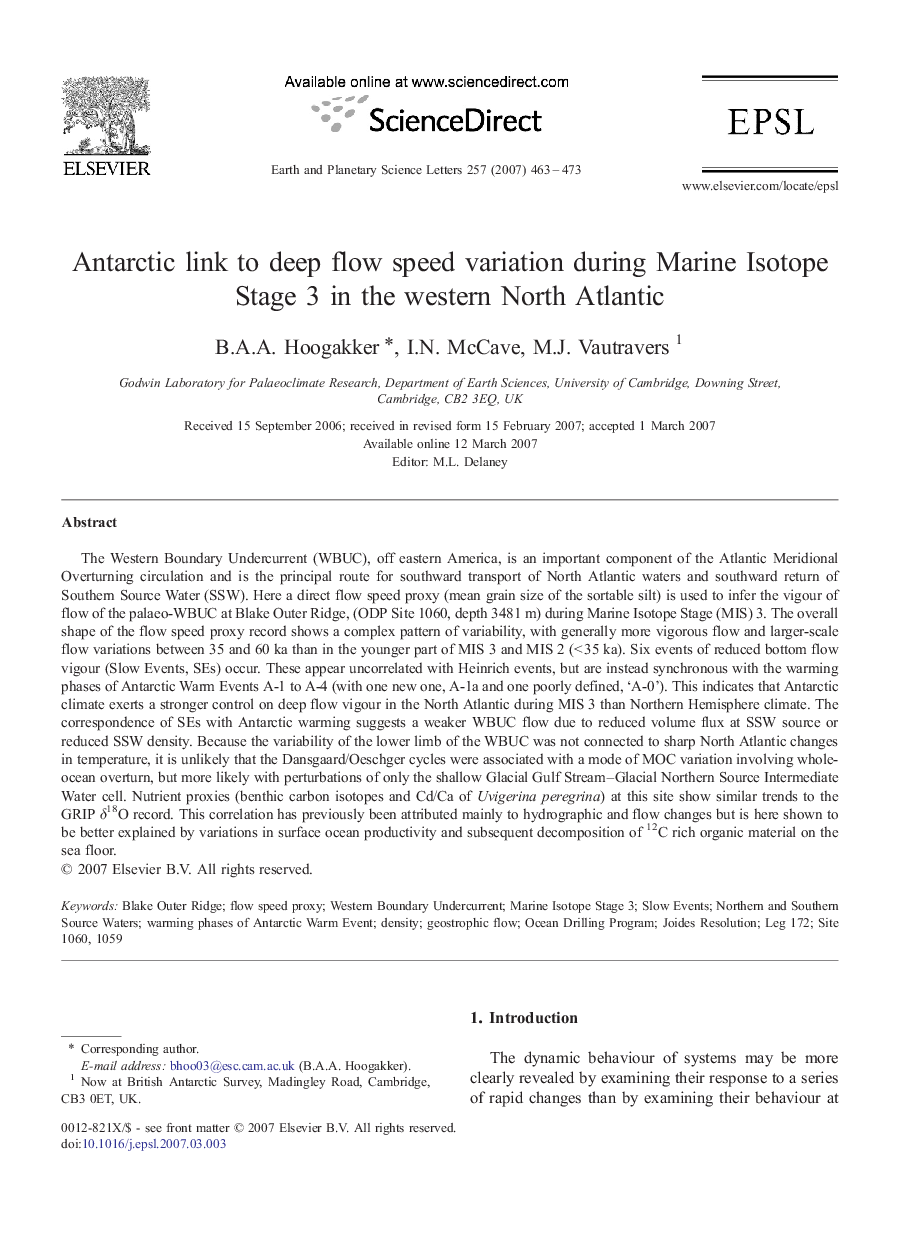| Article ID | Journal | Published Year | Pages | File Type |
|---|---|---|---|---|
| 4680372 | Earth and Planetary Science Letters | 2007 | 11 Pages |
Abstract
The Western Boundary Undercurrent (WBUC), off eastern America, is an important component of the Atlantic Meridional Overturning circulation and is the principal route for southward transport of North Atlantic waters and southward return of Southern Source Water (SSW). Here a direct flow speed proxy (mean grain size of the sortable silt) is used to infer the vigour of flow of the palaeo-WBUC at Blake Outer Ridge, (ODP Site 1060, depth 3481 m) during Marine Isotope Stage (MIS) 3. The overall shape of the flow speed proxy record shows a complex pattern of variability, with generally more vigorous flow and larger-scale flow variations between 35 and 60 ka than in the younger part of MIS 3 and MIS 2 (< 35 ka). Six events of reduced bottom flow vigour (Slow Events, SEs) occur. These appear uncorrelated with Heinrich events, but are instead synchronous with the warming phases of Antarctic Warm Events A-1 to A-4 (with one new one, A-1a and one poorly defined, 'A-0'). This indicates that Antarctic climate exerts a stronger control on deep flow vigour in the North Atlantic during MIS 3 than Northern Hemisphere climate. The correspondence of SEs with Antarctic warming suggests a weaker WBUC flow due to reduced volume flux at SSW source or reduced SSW density. Because the variability of the lower limb of the WBUC was not connected to sharp North Atlantic changes in temperature, it is unlikely that the Dansgaard/Oeschger cycles were associated with a mode of MOC variation involving whole-ocean overturn, but more likely with perturbations of only the shallow Glacial Gulf Stream-Glacial Northern Source Intermediate Water cell. Nutrient proxies (benthic carbon isotopes and Cd/Ca of Uvigerina peregrina) at this site show similar trends to the GRIP δ18O record. This correlation has previously been attributed mainly to hydrographic and flow changes but is here shown to be better explained by variations in surface ocean productivity and subsequent decomposition of 12C rich organic material on the sea floor.
Related Topics
Physical Sciences and Engineering
Earth and Planetary Sciences
Earth and Planetary Sciences (General)
Authors
B.A.A. Hoogakker, I.N. McCave, M.J. Vautravers,
